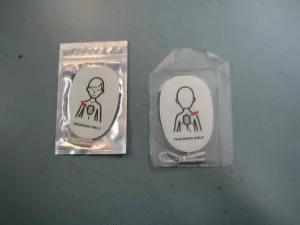
Las Vegas CPR is a top training provider of cardiopulmonary resuscitation programs in Nevada. CPR programs introduce trainees to standard first aid, BLS for healthcare providers, ACLS, and PALS. Certification for CPR training in the US is a very popular requirement by almost all jobs. There are certain risks that come with every occupation and employers want their employees to be prepared for them. Even basic indoor occupations still require a level of CPR training. Las Vegas CPR offers a variety of programs for the general public as well as for people working in healthcare.
Cardiopulmonary Resuscitation classes
There are three available programs for CPR: CPR for the general public, CPR for healthcare providers, and Basic Life Support for healthcare providers. There are minute differences between these three programs, both in length and curriculum.
- Heartsaver CPR training is tailored for the general public. It is a four hour classes that teaches students how to perform 1-person CPR rescue. The basics of rescue breathing, chest compressions, and defibrillation are included. Since this program is for the public, certification is merely optional. Trainees can opt out of the final skills test needed to get certified.
- Heartsaver CPR (C) training is tailored for students who are studying healthcare and healthcare providers. The curriculum is more or less the same with the program for the general public but runs for 4 and a half hours. The skills test and written exam are mandatory.
- BLS for healthcare providers runs for 4 and a half hours as well. It teaches 1-person rescue and 2-person rescue when giving CPR. Like Heartsaver CPR (C), this program is also a mandatory certification program. A skills test and a written exam are given at the end of the program to certify a trainee. (Re-certification – 4 hours)
Higher education for CPR is available for healthcare providers. ACLS and PALS training are advance life support classes that require students to pass a skills test and written exam before applying to the program. Likewise, these two programs have mandatory skills and written tests to certify a trainee.
- Advanced Cardiac Life Support gives trainees advance life support training for adult victims over a 16 hour period in two days. Unlike the standard CPR programs, ACLS is focused on providing CPR in the clinical setting with complete medication and equipment. The use of bag valve masks, hospital defibrillators, and other equipment is a focus of the curriculum. One of the most notable differences is pharmacology topics included in ACLS. (Re-certification – 5-6 hours).
- Pediatric Advanced Life Support similarly gives advanced life support training, but this time focused on pediatric victims. The program runs for 14 hours over 2 days. Infant CPR and CPR for toddlers and younger children are very different from adult CPR. Use of clinical equipment is also included but more focus is given to pediatric pharmacology and assessment. (Re-certification – 6-8 hours).
Certificates
Certification is only valid for two years. Before the expiration date, rescues can choose to renew their certificates for another two years. Expired certificates are not honored at Las Vegas CPR. Rescues who want to renew their expiration certification have to retake the entire program.